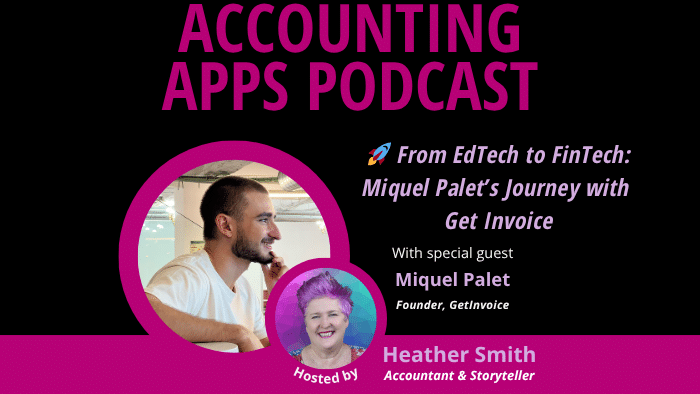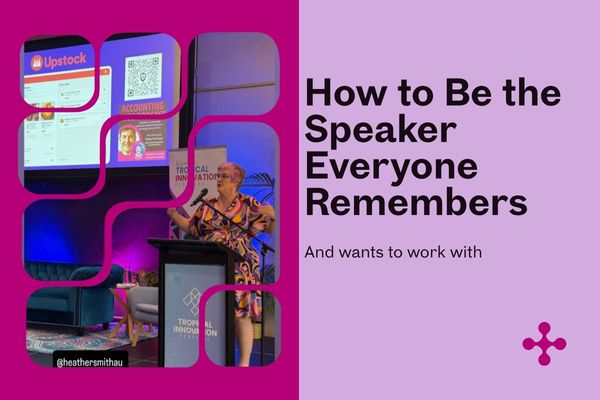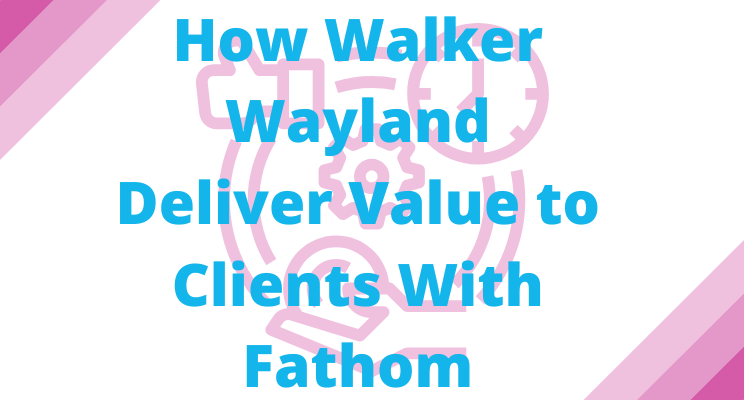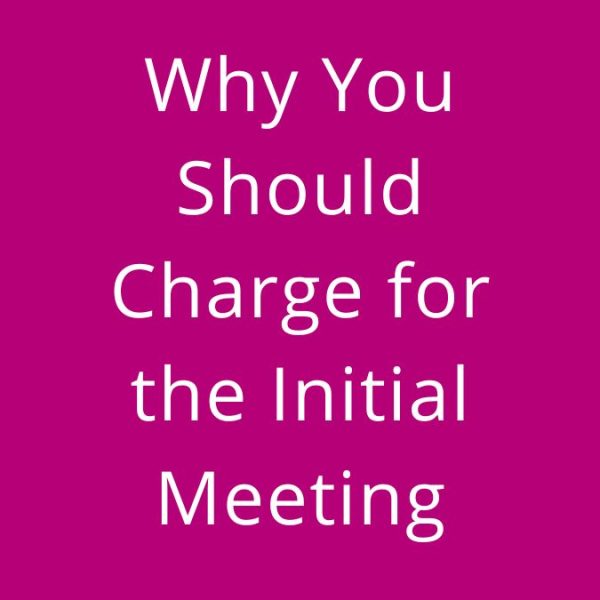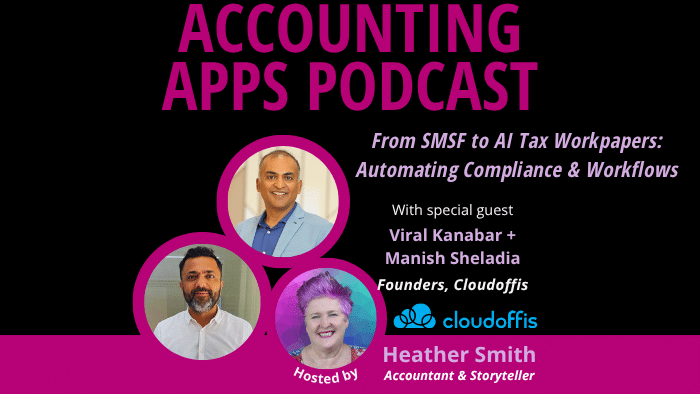Today I’m speaking with Dylan Burgess, Partner Relationship Manager of Float Cash Flow Forecasting. Dylan is based in Sydney, and prior to joining Float, he spent several years at HubDoc. Dylan joined our afternoon community chat, to lead a discussion on Supporting Your Clients and Yourself Through Uncertainty. With the community, we discussed how we could assist our own business, and assist our client’s business. We explored how some people planned for every scenario, while others don’t plan for anything, leaning on the philosophy one plus one equals window.
I’ve worked with the team at Float Cash Flow Forecasting for several years, and you can read about the way I work, at EndorsementDisclosure.com
Dylan, how can we effectively deal with uncertainty and help our clients to deal with it along the way in these challenging times?
Dylan: So obviously just an interesting topic around uncertainty, because I think in my discussions with advisors like bookkeepers and accountants, the big thing that’s coming up is uncertainty. Not only for clients but also for themselves and their practice. So I thought it was just an interesting can of worms to potentially open up as well as have an opportunity to check in with everybody as well. That’s obviously why Heather has done such an amazing job of creating this space for it to be check-in.
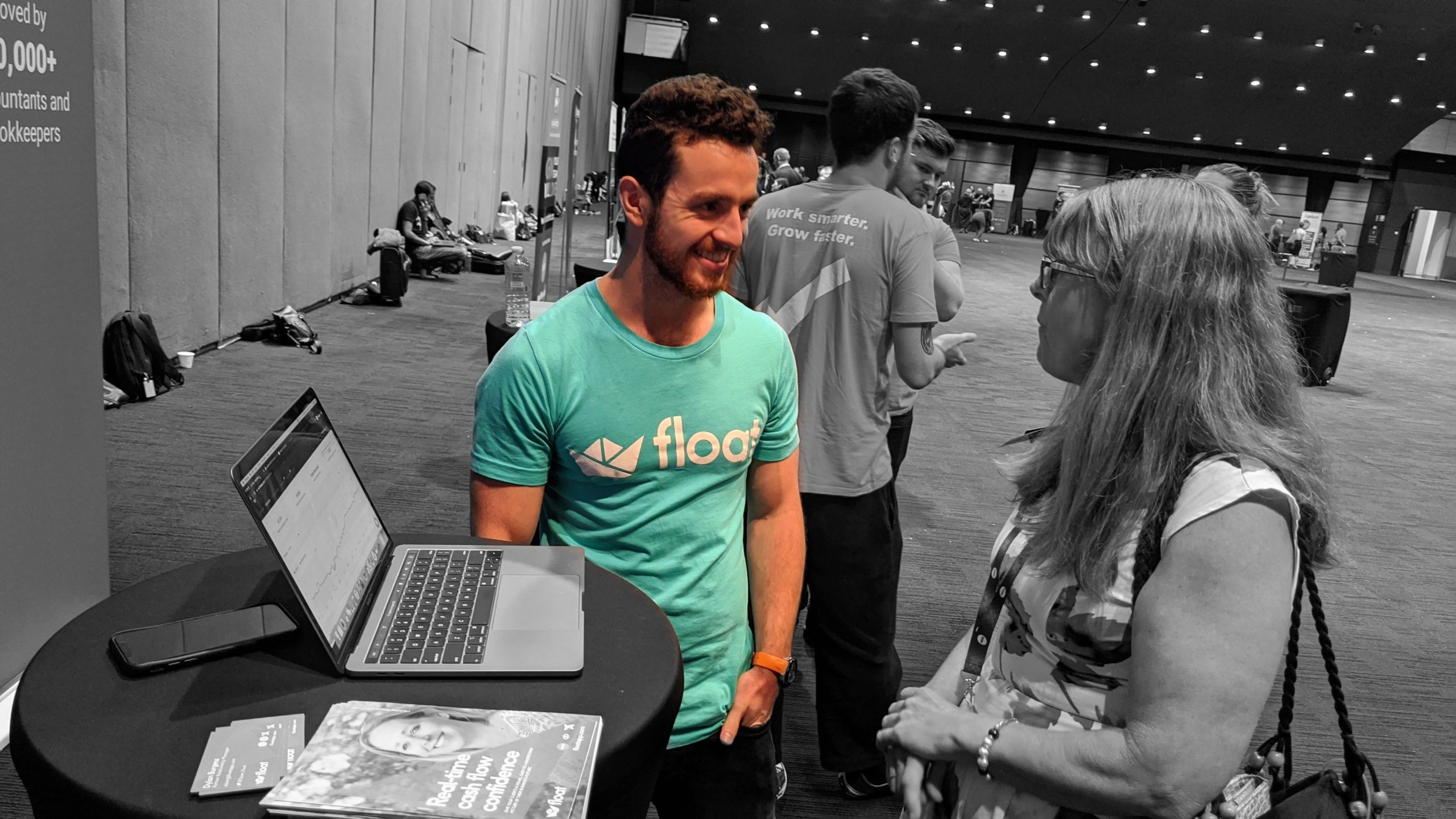
Dylan Burgess, Partner Relationship Manager of Float Cash Flow Forecasting, led our afternoon community chat on how to handle uncertainty in accounting
Dylan: I think uncertainty is quite a scary thing. I know in business when I’ve dealt with this previously, it wasn’t anything like if I look at previous work experiences, whenever we kind of went through challenging times, it wasn’t ever anything major, but it was just, we didn’t know what was going to happen. And then not knowing, in our heads we write these narratives and that can cause us to spiral a little bit. So I think it’s an important one to get into.
Dylan: With clients, I think it’s a really interesting one, in terms of talking through that. There seems to be two schools of thought with clients and I want to get into this a little bit later on, but it seems to be two schools of thought with the clients. It’s the ostriches who just like to put their head in the sand and not think about it. And then there are the cost-cutters that are just like, “Oh no, we’re just going to cut everything.” And that’s bookkeeping, accounting, and you’re talking to the bookkeeper or you’re talking to the accountant, and you’re like, “No, we’re going to cut all the costs.” And so that becomes the other school of thought and that’s also a challenging conversation.
Dylan: But I think before we get into the whole professional working aspect based on what uncertainty looks like there and getting into those two kinds of schools of thought that I’ve come across from my experiences over the last three months, as well as potential clients that you’ve come across, which I’d be interested to explore, is just understanding how everyone’s doing with the uncertainty in their own practice because everybody here is obviously running or part of business themselves. And we’re all part of this crazy world called COVID-19 where we don’t know what tomorrow is going to bring. I think we’ve all stopped planning six months in advance and now plan six days at maximum.
Dylan: So that can have a massive impact on everybody. And I’m really, really cognisant of that. So I want to first open up to how everybody is coping with that. What have been the key elements of uncertainty that have come up potentially for yourselves and how you’re navigating that from a personal perspective. So if anyone wants to volunteer, otherwise I’ll just ask someone to sort of start sharing, Karla?
Karla, what are your insights on making conscious decisions?
Karla: I forgot what I was going to say. I was so enthralled with your answer there that I was like, that’s really, really interesting insights. So the question was about how I’ve dealt with uncertainty or felt either personally or in business. If we’re talking about COVID, I think from the outset, the thing that I’ve… I think that I was lucky that I took with me into COVID, was that the mindset of what are the things that you can control? And what are the things that you can’t? And the things that you can’t control, there’s no use stressing about it or spending time worrying about it because spending time worrying about it’s not actually going to change it if you can’t control it. So I think that I’m probably not the typical one plus one equals two people. I’m one plus one can equal whatever you want it to be. So it doesn’t necessarily fit with the industry.
Karla: I think that that also has been a strength going through this and leading my team through it. So the thing that I’ve probably been able to bring to the table in my business is being that support person for people in my team, or even people within the industry that isn’t the way that they naturally think with the way they approach things. That doesn’t mean to say that I haven’t had times of stress around certainty. I think though that having those underlying mindsets do help you sort of bring back to the, ‘what can I control’? What can’t I control? And then that idea of making decisions, as Heather said, is that something that I’m not necessarily brilliant at, but it is something again, that I can always fall back on, progress over perfection. That doesn’t mean to say that you don’t reach for perfection and you can circle back to perfect things, but sitting and doing nothing, isn’t going to achieve anything. So doing something is better than nothing.
Karla: So I’ve mentioned that through some of these other chats, but they are the things that I think have worked for me. Yeah. That’s my feedback.
Dylan: Yeah. It’s actually interesting how it’s similar themes from what Heather said to what you’re saying as well, it’s around that action piece, it feels like. Take some sort of action, if you could control what shirt you’re putting on, take back control and take an action. And that’s where probably that links to that progress and perfection too. It’s like, rather than just trying to have the perfect business in the middle of something crazy, it’s like, well, we can’t have the perfect holiday or the perfect wedding or the perfect business, but if we can do something, then take that as a win.
Karla: I know I’ve suffered from paralysis over analysis, whatever that saying is that it’s just us in there and go through, but not in all things. So I think that there’s probably some decisions or some areas of either your life or your business that you can move forward with really easily, and other areas that are like a roadblock or a challenge, and that really gets you and you just kind of nodding it out over and over and over and over again. So talking to somebody else is something that works really well to move through that and breaking it down into those smaller achievable goals and that sort of thing.
Dylan: Yeah, absolutely. So I’m not sure how this works. Sorry, Heather. Are other people just jump in on this? Or do you want me to just go around? Like, Nicole looks like you’re itching to jump in, but I just wanted to make sure I didn’t want to like go the wrong way around.
Heather: Dylan, this is what I’m secretly saying in the chat area. Okay. You’ve got to say, Nicole, what day of the week is it? I’m not sitting in the chat area. That’s what I secretly told you. Okay. So you say, what day of the week is it, Nicole?
Nicole: Today?
Heather: He’s got to say it, Nicole. He’s got to say it.
Dylan: Okay. So Nicole, my apologies, but what day of the week is it today?
Nicole: It’s chimpanzee day. It’s not cows day. I’m sorry about that. But it’s chimpanzee day. If you’re one of those monkeys, today’s your day.
Dylan: Amazing. I’m not sure if I’m going to ask where this wisdom comes from. I was going to say, I don’t know if this is a can of worms we want to unpack on this, or we might use up the whole two hours.
Nicole, could you share more on planning and sense of control?
Nicole: I just love to know what day it is. And so that’s what I have to open with every day. And Heather expects to know what day it is. Yesterday was bad poetry day. So I had some bad poetry for everyone. And don’t tell Amar, but I’m not a big planner. I don’t like to plan my life too far in advance. I’m more of a go with the flow kind of person, which will no doubt be really upsetting to him because he loves goals and achieving them. So I guess this hasn’t been so bad right now, but I didn’t have massive goals set and therefore, I’ve not missed them. So I don’t feel bad that I’m failing, because I’m not. I’m just nailing life right now. And Karla said as well, control what you can control. I can control the colour I’m going to wear. It will be red. But I’m also not really good at decisions. So again, it will be red and that says and what colour should I wear and what shoes will go with that? We just assume it will be red and then everything will coordinate from there.
Nicole: And I guess Heather also mentioned, bookkeepers and accountants are probably fairly conservative. So in my personal life, I’m not highly geared. I’m not mortgaged up to the eyebrows. So I have assumed that there’ll be some sort of disaster in life somewhere. And so I’ve got that security blanket or whatever already in place, assuming my husband could lose his job. They do restructures at his work very regularly. So he has to reapply for his own job. And so we’ve just assumed that he might lose his job at one point and we’ve got enough in the mortgage that we can keep going for a long time.
Nicole: So I think, at my clients, because I don’t like hospitality or retail. I guess it’s my personal belief that some hospitality places are struggling to make a profit and pay their staff correctly. And so, to me, I feel it’s safer not to work with those people. Because I think… I don’t want to generalise or suggest that they’re all idiots and they’re cheating their staff, but they’re all idiots and they’re cheating their staff. And so I don’t want to work in that area. So for us, it’s not been too bad. Our clients, some aren’t doing well, some are doing better, some are managing. So I think, we’re kind of doing okay and being in lockdown as someone that’s an extroverted introvert, I struggle with people, and so I’m probably living my best life in that I don’t have to see anyone. It’s kind of good. It’s just this and this is quite manageable.
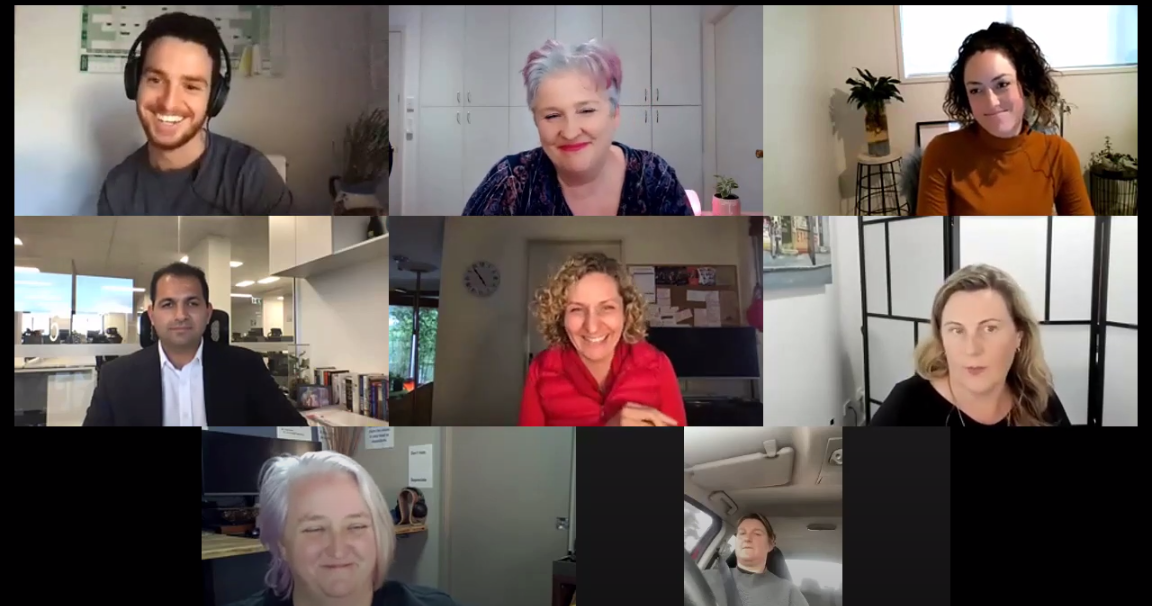
All the participants in our afternoon community chat on uncertainty
Dylan: I was going to say the virtual, I choose when to be an extrovert kind of, as opposed to being forced into it.
Nicole: Yeah. And you can always leave this when you’ve had enough.
Dylan: No, you all have to stay. Yeah. And I think Heather raised a really good point on that too. Just around surviving at the moment is such an achievement in and of itself. Do you know what I mean? Like job loss is challenging, but you know what I mean? If you got your job and you’ve got a plan in place, if even, as you said, if the worst-case scenario happens, then that’s a pretty good place to be in. So for someone that doesn’t plan, Nicole, I’m pretty impressed with how much planning and foresight you’ve done around how much is in the mortgage to make sure that you’ve got enough and you’ve planned for job losses and which clients and industries you want to be working with too. That’s a lot of planning for someone that doesn’t like planning.
Nicole: Maybe. It’s just perhaps, previous shit decisions have brought me to slightly better decisions. And I don’t want to be homeless.
Dylan: Yeah. Good show.
Nicole: On the side, I do live in a flat rather than a house because I couldn’t bring myself to take a big mortgage. So swings and roundabouts.
Dylan: Yeah. Makes sense. Amar, did you have something you wanted to jump in with us? So you could come off mute there, subtly in the background.
Amar, how would you plan for different worst-case scenarios?
Amar: Yeah. I think for me it was just having the plan in place for various scenarios. So for my clients, we would have set budgets that we’d be tracking to when something like COVID-19 happens and that obviously throws everything out the window, is just sitting down with the client and saying, okay, that’s fine. Let’s recut the budget.
Heather: Your audio is funny, Amar. It’s like a bad reception.
Amar: Can you hear me now?
Heather: So much better.
Amar: Sorry about that. Got off Bluetooth. Thank you. I got a phone call and then it just screws up my headset. Yeah. So it’s a case of sitting down with the clients and then just defining what each scenario would look like. If we had a 30% drop in income, 50%, 70%, it just gives them that confidence that it doesn’t mean all hell is going to break loose. We’re going to have shut down the business. You’re going to lose your house. It just gives them that sort of comfort that we do have a plan. If shit hits the fan, we just go to this scenario and go with that. And then there’s no point in tracking against the budget we set pre-COVID and then each month we sit down and we say, “Yeah, you’re down again. Yeah. You’re down again.” Just recut the budget.
Amar: I’ve found when we sit down with clients and actually go through the numbers, they feel like there is a sense of control, that we have a plan, that it doesn’t mean the end. I think it’s the fear of the unknown that really scares clients. So just having a plan in place just gives them that confidence that, “Yeah. While there’s a lot of uncertainty, we can just pull out the right plan if that situation happens.”
Amar, did you do the same thing for your own business as well and put those plans in place for yourself?
Amar: For my business, I have a budget and forecast in place. And with everything that’s happened with COVID, my business didn’t retract. It actually grew. So I have been busier. So I just stayed with my existing budgets and forecasts. Anyway, which were probably more aggressive anyway. So it just meant that COVID-19 with the extra workload, just made it easier to meet the budgets and targets.
Dylan: That’s perfect. Well, just killing it, mate.
Amar: I wouldn’t say that. Just always planning. So I just like to put things on paper.
Does anyone else do a similar approach of just planning for everything for clients?
Electra: Certain clients that are paying for that particular package that includes it. So we offered it and we got a lot of uptake and yeah, clients, they want to look at their budget with me every month and yeah do forecasts and they’re wanting strategy. I’ve been very challenged this year to remember how management accounting from uni. And yeah, the demand is definitely there. So we’ve just moved forward with that.
Was that something you had in place before, Electra, or as a result of COVID that you have seen that uptake more now?
Electra: It was loose. It was like once or twice a year kind of reviews, but now it’s monthly. I just made it mandatory across our firm. Any business that we work with has to have a monthly review with us so that we can keep our finger on the pulse of the business and have better outcomes, no matter what happens in future. And they loved it. And yeah, so that’s what we’re doing now, including hospitality. It’s booming where I am. That’s so funny you say that, Nicole. In the town that I’m in, most of the businesses, in sort of central Queensland, they’re all cash, don’t pay people properly they’re bad, but we’re digitally transforming them one by one. Because they’re booming. We’ve got so many tourists here, Brisbane, sunshine coast.
Electra: Our clients who were dead a few months ago, dead in the water, closing up businesses and now can’t get the staff. Their revenue has doubled each month. It’s mental. I’m not used to hospitality. So I’m learning very quickly, hospitality. And they’re really happy about it because they can see the benefits now of doing things correctly above board if you manage cash flow and budgets monthly. So that’s been really nice that we’ve been able to make that change in an industry that’s typically not good.
Dylan: Yeah. I’m interested to touch base on this one. And this is really, and I think, yeah, exactly what you said, Heather, this is amazing, being able to use a challenging situation to mutual benefit. Do you know what I mean? Your clients are getting a lot more from it, but you’re also getting a lot more from it from your own practice as well, which is just phenomenal.
What strategies did you have in place to do that strategic planning when your clients were at a place where they potentially weren’t able to pay?
Electra: I think it was a kind of a do or die. Sounds rough, but I kind of said, well, you need to invest at this point. Your business has potential. So maybe it’s time to make a real investment in what we can do for you and yeah, so many clients, their fees doubled, annual fees doubled. They were quite happy for us to do this extra work. We also took over bookkeeping as well so that could be done right.
Amar: I do find clients, I totally agree with Electra. Clients that did go backwards significantly, they saw the importance of doing that planning, of going through and a lot of them went back to the drawing board, redefined their businesses, re-documented their business plan. So we worked with them to do that as well and defining all the key metrics that we now need to track to with the updated business plans and goals. So if anything, they needed our services more so than the clients that either their business wasn’t impacted or actually grew slightly.
Electra: I think what we’re doing is as sophisticated as you might be Amar, which means if I can do it, I think any of us can because I’m a tax person. I just had to remember how to do it, but yeah, but you get better at it. Yeah.
If you want to watch the full webinar, this episode and others are to be found from Youtube Channel

